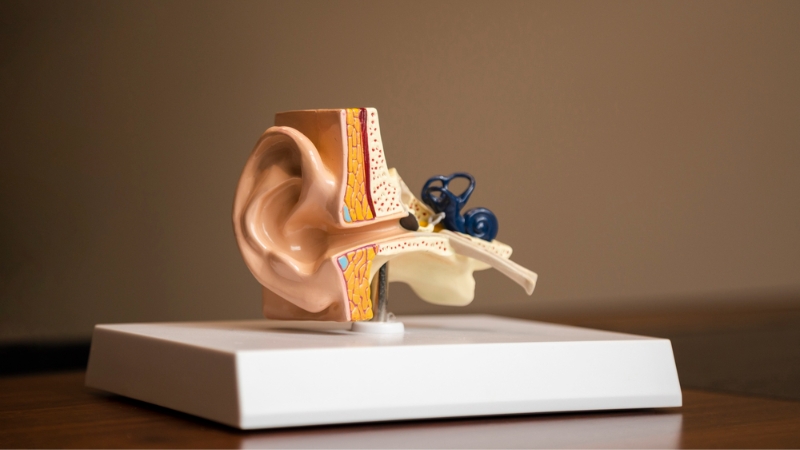Hearing Tests and Hearing Aids"Assessing and Enhancing Auditory Health for a Better Quality of Life."

We place a high priority on optimum hearing health at our medical facility by offering specialist hearing tests and hearing aid services. Acknowledging the influence of hearing on general health, our all-encompassing method comprises accurate diagnosis and customized treatments. This section will discuss the importance of hearing tests and hearing aids, the conditions they treat, any drawbacks, and our dedication to improving our patients' quality of life and auditory experience.
What Are Hearing Tests and Hearing Aids?
Hearing Tests and Hearing Aids are essential components of audiology services designed to assess and address hearing-related issues. Hearing tests, conducted by audiologists, evaluate the extent of hearing loss, while hearing aids are devices that amplify sound to improve auditory perception, enhancing overall hearing capabilities.
Why Are Hearing Tests and Hearing Aids Essential?
- Diagnostic Evaluation: Testing one's hearing can help determine the type and extent of hearing loss that a person may be suffering. Having this information is essential for creating individualized treatment programs.
- Treatment Customization: Audiologists can suggest and create hearing aid solutions that are tailored to the individual requirements and preferences of people with hearing impairments based on the findings of hearing tests.
- Improved Communication: By boosting sounds, hearing aids greatly enhance communication and make it simpler for people with hearing loss to participate in activities, have conversations, and listen to music.
- Enhanced Quality of Life: A higher quality of life is linked to the use of hearing aids. Enhancing one's hearing can have a beneficial effect on relationships, social interactions, and general wellbeing.
Possible Risks:
Even though hearing tests and aids are generally safe, it's important to take into account any possible hazards. Some people may feel a little uncomfortable during some parts of the hearing exam. Furthermore, users of hearing aids can need some time to get used to the enhanced noises, thus there might be an adjustment period. Audiologists collaborate closely with patients to resolve issues and guarantee the highest level of comfort and efficiency.
Treatment Steps in Hearing Tests and Hearing Aids:
- Comprehensive Hearing Test: To determine the kind and severity of hearing loss, audiologists perform a comprehensive hearing test at the start of the procedure.
- Results Discussion: Following test results, audiologists speak with patients to describe the severity of hearing loss and possible courses of therapy.
- Hearing Aid Selection: Audiologists help choose appropriate hearing aids based on the evaluation, taking budget, preferences, and lifestyle into account.
- Fitting and Adjustment: Custom fittings are made for hearing aids to guarantee comfort and best functionality. To suit each person's unique hearing demands, adjustments are made as needed.
- Orientation and Education: Orientation and instruction on how to properly use and maintain hearing aids, including upkeep and battery replacement, are provided to users.
- Follow-Up Care: Audiologists offer continuous assistance, such as follow-up consultations to assess concerns, track advancements, and make additional modifications as needed.
Our commitment to enhancing the auditory experience and general quality of life for people with hearing loss is evident in our services for hearing tests and hearing aids. Our group of skilled audiologists is dedicated to provide thorough diagnostic assessments, customized solutions, and continuing assistance. We are here to help you on your path to improved hearing, whether you're thinking about getting a hearing test or researching your options for hearing aids.
Top Asked Questions and Answers:
FAQ (Frequently Asked Questions):
+91-9144411108
Emergency Cases

